Special for Africa ExPress
Ferdinand von Habsburg-Lothringen*
Juba, 13th April 2014
The storm clouds have gathered – this was the feeling, as the first major political rumbles of thunder echoed around Juba in early December of 2013. Few doubted that the internal exchanges within the ruling party, Sudan Peoples’ Liberation Movement (SPLM), were serious.
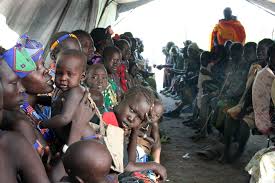 The subsequent fighting that broke out among the Presidential Guard, in South Sudan’s capital Juba, and rapidly escalated across into Jonglei State, exposing the major, known fractures within the national Sudan Peoples’ Liberation Army (SPLA), and the rapidly ensuing polarization that pitted the key communities in South Sudan against each other on a level unprecedented since the second civil war indicated that none of this came out of the blue.
The subsequent fighting that broke out among the Presidential Guard, in South Sudan’s capital Juba, and rapidly escalated across into Jonglei State, exposing the major, known fractures within the national Sudan Peoples’ Liberation Army (SPLA), and the rapidly ensuing polarization that pitted the key communities in South Sudan against each other on a level unprecedented since the second civil war indicated that none of this came out of the blue.
The contours of these major fault lines were known to all South Sudanese and any international observer interested enough to read or ask questions.
The fall-out of this violence over nearly 4 months are catastrophic – an estimated tens of thousands dead, over 1 million internally displaced, over 250,000 refugees, a fractured army, a shaky cessation of hostilities that is hardly holding, a political dialogue nurtured by the Inter-Governmental Agency for Development (IGAD) that few South Sudanese have confidence in and a failed development project. Three state capitals have been razed to the ground and the future of the world’s newest country is as insecure as it has ever been, even during its interim phase after the Comprehensive Peace Agreement (CPA) signed in 2005.
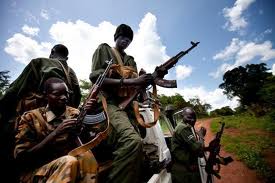 Recent observers, disaster journalists, fresh-faced diplomats and eager humanitarians have expounded fluently on the crisis, waxing lyrical on the political fall-out and the latest clashes as well as the gossip around the talks in Ethiopia.
Recent observers, disaster journalists, fresh-faced diplomats and eager humanitarians have expounded fluently on the crisis, waxing lyrical on the political fall-out and the latest clashes as well as the gossip around the talks in Ethiopia.
But the international community’s knowledge of the underlying causes of the conflicts in South Sudan, despite years of consecutive analysis, apparently fell short of predicting all this as one senior international official after another exclaimed surprise over the crisis – perhaps exposing over-confidence in their political leverage, recognition of their personal failures and ultimately need for professional self-preservation.
Now, the headlines seem to predict the trajectory of yet another failed state: committees investigating human rights abuses, demands for accountability, threat of sanctions, the call for justice, humanitarian appeals, accusations of international interference, trials against coup plotters… The war of words between yet another entrenched African government and donors… Was independence a mistake, do the many birth attendants regret having being invited to bring it into the light of day, knowing that the parents were so frail and close to divorce?
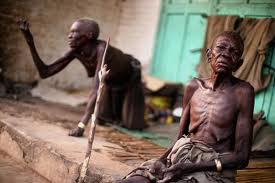 Certainly, the humanitarian crisis will dominate the headlines again and for many months to come, as millions are food insecure and vulnerable, while the international community ruminates on its next steps, nursing bruised egoes and pulling out a more combative line to attempt to check what it sees as a potentially authoritarian state.
Certainly, the humanitarian crisis will dominate the headlines again and for many months to come, as millions are food insecure and vulnerable, while the international community ruminates on its next steps, nursing bruised egoes and pulling out a more combative line to attempt to check what it sees as a potentially authoritarian state.
But perhaps this indicates a much more worrying set of issues too, besides those accompanying seemingly failed post-conflict states and one we are much less comfortable in talking about.
Bilateral engagements have tangled humanitarian and development programmes with wider economic and security interests, overemphasizing “stabilisation” of a new state through investment in security only to find that a fractured army and police with weak command and control, discipline and cohesion have used these investments to turn on themselves or strong-arm those opposing it, putting into question civilian oversight.
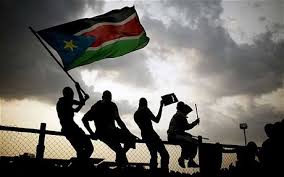 A number of diplomats have privately admitted that this was a risky endeavor, but scaling down of similar programmes elsewhere around the globe offered an easy transfer of approaches and resources to South Sudan. A more careful calibration should have been made given South Sudan’s predictable trajectory, focusing more on dialogue around nation building and bringing cohesion to the many communities and political groupings.
A number of diplomats have privately admitted that this was a risky endeavor, but scaling down of similar programmes elsewhere around the globe offered an easy transfer of approaches and resources to South Sudan. A more careful calibration should have been made given South Sudan’s predictable trajectory, focusing more on dialogue around nation building and bringing cohesion to the many communities and political groupings.
External priorities have clearly been imposed for more than a few years onto a country and people struggling to draw themselves out of over half a century of violent conflicts (including two civil wars that stretched between 1955 and 1972 and again 1983 and 2005) – only as recently as last year has the international community agreed that its priorities needed to be aligned more closely to the South Sudanese priorities through the New Deal (an extraordinary confession), but meantime there has been bickering and competition over the choicest, most accessible places with little forethought to the implications of more emphasis in some areas over traditionally isolated, insecure and hence marginalized communities, thus entrenching conflict rather than preventing it.
Countering the cycles of violence that go back far beyond the crisis by investing in these marginalized areas is essential.
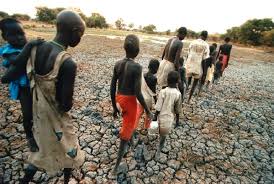 The over-tendency on quick fix projects with poor analysis of the context and conflict dynamics in South Sudan for many a decade has been well documented, steering from the complex and very real issues to those easiest to address in short, donor-dictated timeframes.
The over-tendency on quick fix projects with poor analysis of the context and conflict dynamics in South Sudan for many a decade has been well documented, steering from the complex and very real issues to those easiest to address in short, donor-dictated timeframes.
In a nation with 63 ethnic groupings and over 40 base languages, with 70% illiteracy, massive poverty and over 60% classified as youth, the challenges have barely been addressed. Ignoring or simplifying the history, culture and social dynamics to suit external needs is ensuring that few if any of the investments will stand the test of time, and as long as these are furthermore based on limited information that is poorly researched and fuelled by the in-country ‘international gossip mill’ that excludes grassroots voices or uses only a limited, well- versed and often unrepresentative group of South Sudanese, the future of humanitarian action and development remains in question.
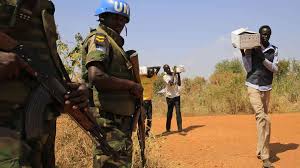 This latest outbreak of violence and the response to it indicates the unrealistic expectations laid on South Sudan in terms of what, among the many approaches, has taken root and impacted work ethic and social norms and behaviour. Given the short-term focus, lack of patience and inability to stay the course by many in the international community, as well as a frequent mismatch of technical staff (all- too-often young, brash, impatient, lacking in compassion or too technical), the development framework is at risk of producing further failures.
This latest outbreak of violence and the response to it indicates the unrealistic expectations laid on South Sudan in terms of what, among the many approaches, has taken root and impacted work ethic and social norms and behaviour. Given the short-term focus, lack of patience and inability to stay the course by many in the international community, as well as a frequent mismatch of technical staff (all- too-often young, brash, impatient, lacking in compassion or too technical), the development framework is at risk of producing further failures.
Cutting and pasting from projects in Kosovo or Afghanistan, while broadly relevant, needs contextualization and since one size does not fit all, more advice needs to be taken from South Sudanese staff and more responsibility given them.
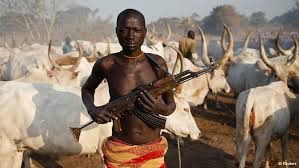 With little or no experience of and appetite for dialogue, reconciliation and peace building work, the international community with few notable exceptions1 has utterly failed (despite clear and consistent high level advice to the UN, diplomatic corps and NGO community) to shore up a functional, solid, wider conflict prevention strategy in support of existing and crucial national and local bodies.
With little or no experience of and appetite for dialogue, reconciliation and peace building work, the international community with few notable exceptions1 has utterly failed (despite clear and consistent high level advice to the UN, diplomatic corps and NGO community) to shore up a functional, solid, wider conflict prevention strategy in support of existing and crucial national and local bodies.
Initiatives such as the Committee for National Healing, Peace and Reconciliation (established in April 2013 but only receiving minimal international support in December 2013 – the month of the crisis), the National Reconciliation Platform (which has been the subject of negative international opinion despite showing its independence) and the All-Jonglei process and conference (January – May 2012 which received minimal international support and maximum cynicism) are prime examples, but the absence of either a strategy or financial support by the international community speaks louder than words.
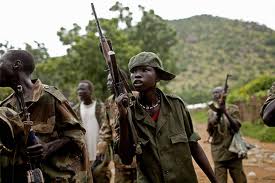 The adage “prevention rather than cure” has, as yet, not infused the work of the UN or the NGOs in South Sudan, and a new, reflective strategy is needed with political and financial investments behind it.
The adage “prevention rather than cure” has, as yet, not infused the work of the UN or the NGOs in South Sudan, and a new, reflective strategy is needed with political and financial investments behind it.
The international community has reeled back from an ever-growing crisis, failing to ascertain where obvious longer-term emphasis can be placed to prevent further, deeper social and political fissuring, aiming its sights at blaming individuals rather than affirming its failure to help address the well- known root causes through conflict-sensitive approaches. Humanitarian aid will be the sticking plaster over South Sudan’s gaping wounds, as the country bleeds before its divided leaders and unattended by a divisive and ineffective international community. Attending to the proverbial plank in the international community’s eye may be the first order of business. “Physician heal yourself!”
Ferdinand von Habsburg-Lothringen
*Ferdinand von Habsburg-Lothringen, a Swiss citizen, has been living and working in South Sudan for 16 years, as a humanitarian worker during the second civil war, as well as spending 6 years as an advisor to UNDP in Sudan and in Southern Sudan in focusing on Governance, Peace Building and Community Security and Arms Control. Under UNDP, he was later seconded to the Sudan Council of Churches inter-communal mediation efforts in Jonglei in 2011, and supported the work of the Presidential Committee on Peace, Reconciliation and Tolerance in Jonglei. He has also worked with the Ministry of General Education and Instruction and UNICEF supporting to conceptualise their programme on Peacebuilding, Education and Advocacy. In the last two years Ferdinand joined the core team supporting the process of the Road Map to Reconciliation under the then Vice President H.E. Dr. Riek Machar in an advisory capacity. His most recent appointment is as advisor to the Committee for National Healing, Peace and Reconciliation in South Sudan. He is married to a South Sudanese and speaks colloquial South Sudanese Arabic.
1 Norway, Switzerland and Catholic Relief Services

